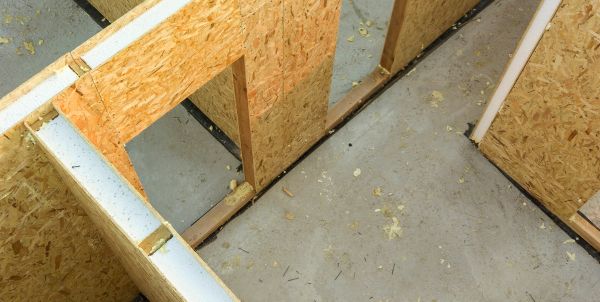Net Zero & Wave 2.2 – New Cash, New Rules, New Policy – Does it change your view of Retrofit?
Net Zero & Wave 2.2 – New Cash, New Rules, New Policy – Does it change your view of Retrofit?
Social Housing Decarbonisation Fund (SHDF) wave 2.2 applications are due to close at the end of January 2024. Will the government’s recent relaxation of the requirement to have all privately rented properties at EPC band C by 2028 have an impact on applications?
The vast majority of England’s homes are amongst the oldest and least energy-efficient in Europe. With this new funding, landlords may see this as an opportunity to access financial support for retrofitting projects which makes it more economically feasible to invest in retrofit upgrades that make their properties more energy efficient or, as they are required to contribute towards any 2.2 funding, they may see it as a way of “kicking the can down the road” if the regulatory pressure is perceived to be relaxed.
Many articles have been written stating that despite the Government’s row back on requiring rental properties to be EPC C by 2028, Registered Providers (RPs) are still pressing on with their commitments to upgrading and decarbonising their stock as part of their strategic plans and the opportunity available with the release of this funding can only help them to achieve their goals.
It’s not just Funding that is needed.
Funding is only one element, however, as there are also social and personal impacts to be considered not only to residents but to the wider industry and society. Decarbonising and making housing stock more energy efficient will reduce reliance on fossil fuels, reduce residents’ fuel bills, and therefore assist in bringing more families out of fuel poverty. Conversely, this flip-flopping of policy means that the industry may become unsure as to the scale of investment required, whether to train up the next generation of apprentices and continue with investigating innovative solutions to improve our homes’ energy performance.
This latest round of funding also excludes previous SHDF applicants with signed agreements from bidding again, many of whom have large housing stocks requiring more funding to bring them up to standard. Successful applications by councils, for instance, are not only for their own housing stock but also part-funding for smaller registered providers who may not have the requisite 100-plus units required under wave 2.1. Will the new exclusion impact these providers?
Good Information on your stock is key
With successful applicants being required to work to the new PAS 2035: 2023 regulations and its clarification on the fabric first approach, this offers up the chance for landlords to assess their existing stock and asset management plans. With retrofit assessors being required to note any structural defects in their reports, this provides an ideal opportunity to address any long-standing issues.
Here, at Poole Dick we work alongside RPs to assess the condition of their housing stock, identifying areas where comprehensive retrofitting and planned maintenance can lead to long-term benefits.
After all, it is no good installing EWI if you plan window replacement in 5 years and end up damaging the insulation to replace them! This longer-term strategic thinking not only helps landlords to understand their stock but also how the replacement of elements that may not have technically reached the end of their life, as part of a wider retrofit scheme can result in longer-term cost benefits to both the RP and resident, minimise disruption and assist towards reducing their fuel bills.
Get it right 1st time
As has been seen from the criteria in wave 2.2, whereby previous successful applicants are not permitted to submit a bid in this round, we may find that this becomes a repeated criterion for any possible future SHDF funding. If this were the case, then it is of even greater importance that strategic long-term thinking and “getting it right the first time” is understood to ensure RPs do not have to go back and revisit or rectify previously installed works. Asset managers are key to understanding their stock and by looking at properties holistically with them we can ensure that any funding secured is well spent, the best value and potential future remedial works which landlords would have to source their own funding is minimised.
It has been well documented that there are instances where previous retrofit works have been carried out to a poor standard, with a lack of checks in place leading to abortive works, damp issues, additional costs, and disruption to residents. The new regulations and new pot of funding from the government should assist with minimising works like this in the future.
Ensure you work with Suitably Qualified Consultants – Like Poole Dick!
By engaging with appropriately qualified consultants at an early stage RPs can use this time and opportunity to build up a considered approach to retrofit, looking at schemes holistically and ensuring projects are accurately surveyed, costed out, and appropriately tendered, together with robust monitoring of the installation. This should lead to projects running to time, reduction in cost overruns due to lack of accurate survey or tender information, and installations to a higher standard than previously.
In summary, the impact on funding applications and the drive to retrofit will depend on the attitudes and motivations of individual landlords. Some may take advantage of the opportunities presented by SHDF wave 2.2 to enhance energy efficiency, while others may adjust their priorities based on the changed regulatory landscape.
Retrofit Consultancy services from Poole Dick



